Digging Roots Geotourism by Dr.Ir. Budi Brahmantyo
Bandung, fitb.itb.ac.id -Geowisata (Geotourism) is a relatively new vocabulary in the national tourism. The term is less popular than eco-tourism (ecotourism), or agro-tourism for example. However, in Law No. 9/1990 on tourism, besides agro tourism, ecotourism and Geotourism either are not mentioned.
Geotourism Geotourism or what it is? Geotourism term appears no older than the mid-1990s. A geology expert from Buckinghamshire Chilterns University in England named Tom Hose expected to be among the first to actively introduce the term. For example, he wrote in the Geological Society in 1996 a paper entitled “Geotourism, or can tourists Become casual rock hounds: Geology on your doorstep”.
Is the travel associated with the new terrestrial pioneered since the 1990s it? Of course not. Since scientists are exploring various places on this Earth, especially in the 18th century, geologists have been used to combine bussiness and leisure simultaneously. In a geological excursion into the field, the group geologiawan been accustomed to enjoying the beautiful scenery, unique landscapes and rocks, ardently along rivers and beaches, or climb hills, in addition to his main job record geological processes.
But for public consumption, it may be expected that the activities Geotourism began to grow since the rise of the backpacker (back-pack tourists) in the 1980s. One paper written by Jane James in 1993 at a conference entitled “Promoting Earth Sciences” in Southampton, England, for example, still uses the term tourism geology (geological tourism) instead Geotourism.
Tom Hose followed geologiawan other comrades in Europe clearly based on the geology Geotourism base. Starting from the Europeans it was then that the term “garden of the earth” (geopark), which is a conservation area that protects the natural heritage unique geological objects, rare, valuable, interesting, and important.
Under the UNESCO network, in Europe already formed 21 garden earth is the appeal and main Geotourism destination. Asia has been pioneered by China which was then followed by Malaysia. Parks earth Langkawi Island, Malaysia, since 2006 officially became the park’s first earth in Southeast Asia under the UNESCO network. Indonesia, which has many unique geological phenomenon, far behind the neighboring country.
If Europe, followed by Australia, grounded in geology Geotourism as a basis, the United States little else. With the support of the Foundation National Geographic is already very well established and respected, Travel Industry Association of America TIA defines Geotourism as a tourism promotion and development of the geographical characteristics of the object attractions, including the environment, culture, aesthetics, heritage, and community.
With comprehensive coverage, Geotourism US side of the object, no difference with ecotourism. Indonesia itself is more likely to follow the European and Australian versions.
Ecotourism
If the US Geotourism synonymous with ecotourism, on other continents, Geotourism placed most part of the natural attractions of special interest whose principles follow the rules of ecotourism. Geotourism as part of ecotourism in any case be subject to the principles traveled environmentally sound and sustainable correspond Quebec Agreement in 2002.
World Ecotourism Summit held in Quebec, Canada, in late May 2002 that includes an agreement that the implementation of eco-tourism attractions utilize natural areas relatively undisturbed and are generally protected, must be a tool of conservation and sustainable development for local communities.
Quebec Agreement 2002 for ecotourism is derived as a rule of nature tourism development alternatives to be patterned support nature conservation, instructive and provide knowledge for its tourist, economic and cultural benefits for local communities in a sustainable manner, and a small negative impact on the environment.
Ecotourism should involve local people not as objects, but as a guide or main actor or facilities in accordance with the rules of the environment, for example. On the other hand, there must be experts who not only act as a guide, but as an interpreter who will provide insight into the science of ecotourism attractions.
Behind it all, good management is key to success of ecotourism activities. Total must be packed in concepts traveled fixed emphasizes pleasure. Moreover, prioritizing safety.
Geotourism West Java
West Java has compiled nine leading tourist area (KWU). Ninth KWU are: 1. Industry and Business Travel Bekasi-Karawang, Purwakarta 2. Agro-Subang, Cirebon Coastal 3. Culture, 4. Nature Mountains Peak, 5. Urban and Education Bandung, 6. Kria and Culture Priangan, 7. Ecotourism Palabuhanratu, 8. Recreation Pangandaran Beach, and 9. Special Interest South West Java.
In all KWU could be developing other attractions that may be identical. Geotourism even be flexible to some KWU. Its appeal could range from the sea, beaches, rivers, hills to mountain peaks. Geotourism could develop in West Java in KWU 4 to 9. Outside the KWU division, Jabar Geotourism can be grouped into four themes, namely volcanoes, karst, river flats, and beaches.
But without interpretation, the whole is only a natural attraction, passive, and dried meaningless. What is needed is a proactive promote it. Sensitivity and attention to environmental issues in the West / Europe became a grip us in managing ecotourism-Geotourism.
When the impression that the eco-Geotourism Indonesia managed well it was caught, immediately spread the information and then we just waited for the next visit. But be careful, of course the same thing with the opposite effect could occur if the impression is bad and disappointing. ***
Author, lecturer GL4022 Geotourism in Geological Engineering Department, ITB and staff KK Applied Geology, FITB, ITB and KRCB members and IAGI.
Source (http://www.pikiran-rakyat.com/prprint.php?mib=beritadetail&id=7153)

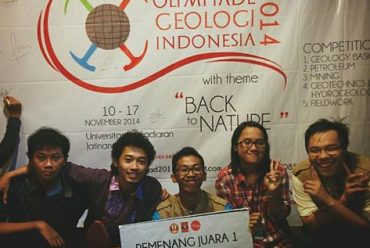
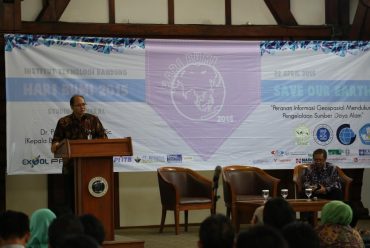
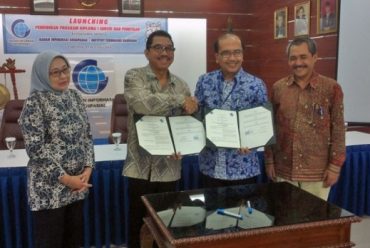
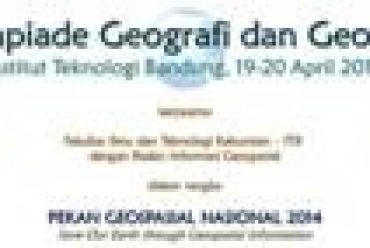
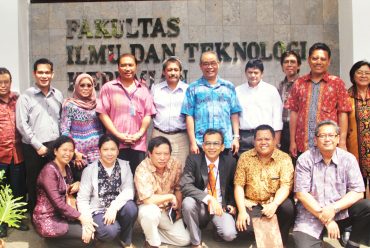
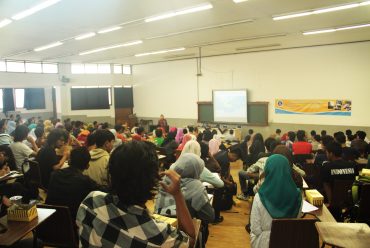
No Comments